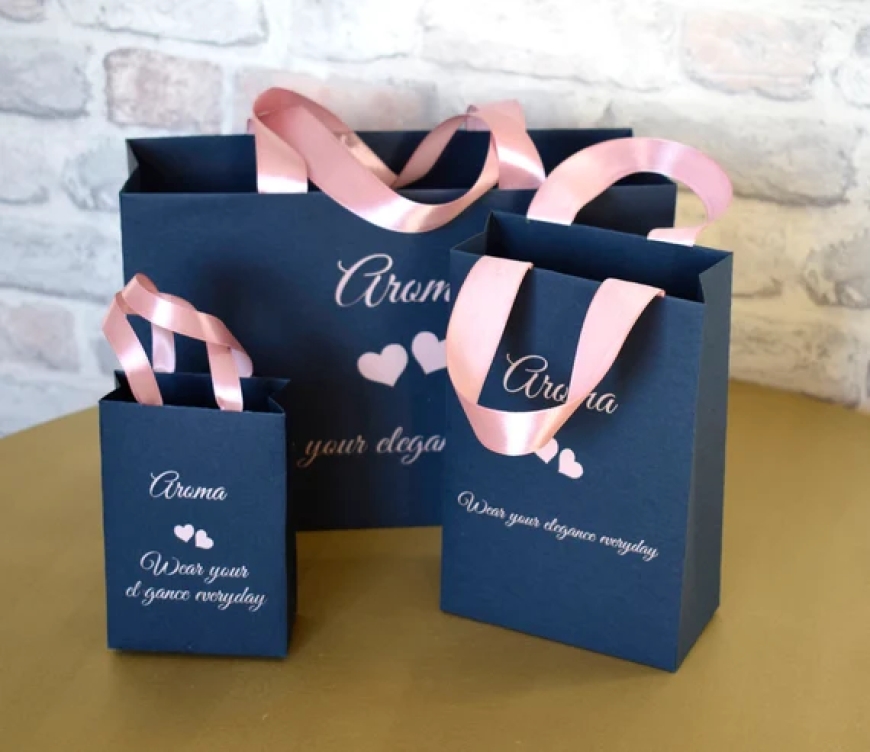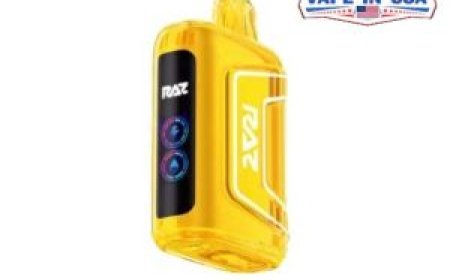Why Custom Gift Bags Are Harming the Environment
Understanding the environmental consequences of custom gift bags on society and learning sustainable alternatives to replace them requires examination.

Traditional gift bags have become highly popular in Canadian markets and among international consumers. Such personalized bundles serve all festive occasions, including weddings, business occasions, and holidays. They come with customized features like names combined with logos and photograph prints. Although custom gift bags present attractive branding to customers, they spark increasing environmental concerns.
Mixed-material gift bags with plastic or metallic coverings present an extensive sustainability challenge for environmental protection. The attractiveness of these products turns out to hide a remarkably brief existence. These disposable products have a short lifespan before their disposal, which leads to their addition to waste dumps or littered environments. The article examines the unexpected adverse effects of these current fashion items.
A Rising Threat to Our Ecosystem
The production of custom gift bags includes a variety of manufacturing techniques that integrate both paper materials with plastic and metallic foils along with synthetic fibers. The combination of elements within custom gift bags prevents them from being recyclable by standard municipal recycling facilities. Canadian consumers who select paper gift bags for environmentally friendly packaging usually discover that their choice does not align with reality. These bags remain resistant to decomposition because they use gloss coatings and plastic handles along with glitter embellishments that result in long-term environmental degradation. The distribution of branded custom gift bags for businesses leads to lasting waste production, although companies remain unaware of this negative consequence.
From Factory to Landfill
Making custom gift bags for the market leads to substantial carbon emissions. Current manufacturing procedures demand high resource consumption during printing and lamination, followed by international supplier logistics. These packs receive immediate disposal since users discard them immediately because they lack any reuse functions. The main contributors to the premature discarding of products are events alongside retail promotions. Business events such as trade shows and conferences utilize custom gift bags to the extent that most are discarded by the endend ofy in massive quantities. This packaging dilemma occurs when the brief usage time of such packages results in substantial environmental degradation.
The Deceptive Appeal of Personalized Packaging
These customized bags reach users because they possess attractive visual features that attract the eye. The packaging incorporates both business logos and family snapshots because it serves as an attractive display. Attractive designs of these products create sustainability issues in their production process. The shininess of ribbons combined with high-resolution pictures printed on custom bags decreases their recyclability, although they provide attractive photo opportunities. The decorative elements used on these bags not only harm the environment but also cause extensive damage to it.
The Misleading Lure of Accessibility
Due to changes in the market, suppliers can now fulfill best custom-printed boxes without order minimums or requirements, thus enabling micro-scale events and consumers to obtain brand-packaged items. The inclusive order policies that attract customers also increase production levels until waste accumulation occurs. The absence of ordering minimums enables small-scale events, including baby showers or birthday parties, to result in persistent disposal difficulties from their materials. The majority of these non-biodegradable gift bags accumulate rapidly among fillers and in ocean habitats after purchase.
Tiny But Toxic
Every size variation of these bags faces inspection as a matter of environmental concern. The promotional image of cute and handy small custom gift bags fails to tell the true story about how these bags produce much waste because customers usually dispose of them instead of reusing them. The brief dimensions that make these bags suitable for jewelry and party favors an,d cosmetics also result in their quick disposal. Their environmental impact remains equal to larger gift bags since they consist of the exact problematic materials. People usually do not understand that smaller items do not equate to being greener.
Weddings and Waste
The demand for custom bags reaches its peak in wedding-related occasions. Customized bags fill the entire lifecycle of wedding events, starting with bridal showers right up to the day itself. Homemade wedding gifts bags affect the environment negatively in proportion to the number of typical wedding attendee numbers. The thoughtfulness of the gifts usually leads to their discarding in the trash. The notion of sentimental value conceals unjudgmental purchasing decisions that are unsuitable for sustainability. Eco-friendly packaging remains rare despite finding custom gift bags through cheap online sources, since these bags usually come from high-carbon-emission production centers.
Conclusion
Custom gift bags display attractive branding features but create severe environmental troubles for the planet. Producing custom gift bags in large quantities for promotional purposes leads to environmental costs, alongside their disposable nature. People should begin reevaluating how they package items to adopt materials that degrade naturally and enhance sustainability instead of harming the environment. Every member of society who loves beauty in packaging and business owners, as well as brides-to-be, will discover superior packaging options. We should embrace efficient, elegant, sustainable present giving that creates no environmental burden.





































